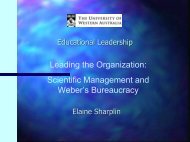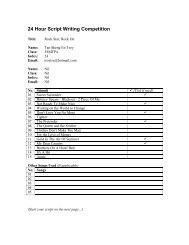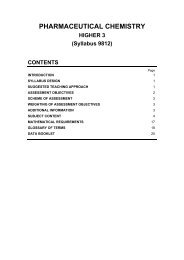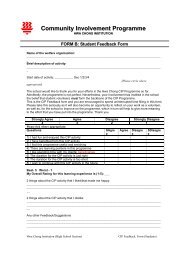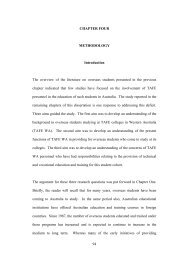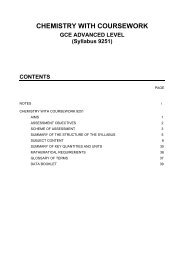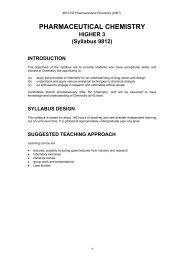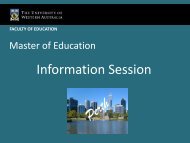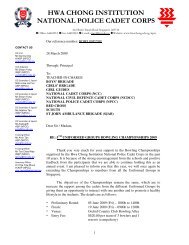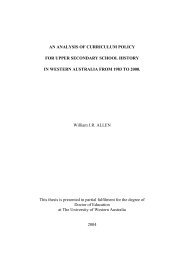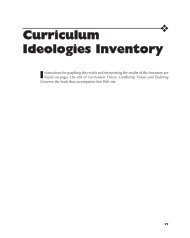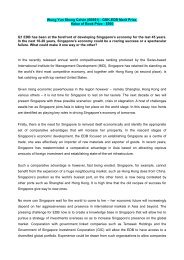EDUC 8678 - Pre-reading - Curriculum and its discontents
EDUC 8678 - Pre-reading - Curriculum and its discontents
EDUC 8678 - Pre-reading - Curriculum and its discontents
You also want an ePaper? Increase the reach of your titles
YUMPU automatically turns print PDFs into web optimized ePapers that Google loves.
160<br />
PHILIP W. JACKSON/CI<br />
rated movies <strong>and</strong> other forms of melodrama, we have come to expect the<br />
worst when circumstances require determining whether death is apparent<br />
or real.) Actually, Schwab answered the question without even bothering<br />
to ask it in the opening lines of his widely read essay "The Practical: A<br />
Language for <strong>Curriculum</strong>." The year was 1970. Herewith, Schwab's<br />
delivery of the bad news.<br />
"I shall have three points," he began, innocently enough. "The first is<br />
this: The field of curriculum is moribund. It is unable by <strong>its</strong> present<br />
methods <strong>and</strong> principles to continue <strong>its</strong> work <strong>and</strong> contribute significantly<br />
to the advancement of education" (Schwab 1978, p. 287).<br />
For all <strong>its</strong> starkness, Schwab's health bulletin did contain a ray of hope,<br />
though <strong>its</strong> light was faint indeed. As we know, the word moribund allows<br />
within <strong>its</strong> meaning for the possibility of a miraculous recovery, but, as we<br />
also know, the chances of that happening are mighty slim. In short, the<br />
message could hardly be called optimistic. The field of curriculum may not<br />
have been completely gone at the time Schwab took <strong>its</strong> pulse, but if we were<br />
to believe his prognosis, <strong>its</strong> end was close at h<strong>and</strong>.<br />
Just how close the end really was back in 1970 has been brought into<br />
question by subsequent <strong>reading</strong>s of the vital signs. Consider, for example,<br />
Dwayne Huebner's address to this division six years after Schwab's gloomy<br />
pronouncement. Huebner's debt to Schwab's initial pessimism was made<br />
explicit in the title of his paper-"The Moribund <strong>Curriculum</strong> Field: Its<br />
Wake <strong>and</strong> Our Work" (1976). But the title also revealed Huebner's basic<br />
uncertainty about whether the patient was yet alive or had long since<br />
crossed the bar. For if the field was in fact still moribund, as Huebner<br />
described it, why talk about a wake? A death watch, perhaps. Even a vigil<br />
might sound all right. But "The Moribund <strong>Curriculum</strong>: Its Wake..."?<br />
That did seem to be rushing things, or so I felt on first pondering the<br />
meaning of Huebner's title.<br />
In the body of his paper, Huebner went on to clarify the matter<br />
somewhat, though there, too, a trace of ambiguity continued to nag the<br />
close reader. For example, toward the end of his remarks Huebner<br />
emphatically declared, "The curriculum field of the past one hundred<br />
years is not just moribund; for all practical purposes it is dead" (p. 165).<br />
"Fair enough," the consciousness behind my skimming eye replied,<br />
"time to exchange the physician for the mortician." "But wait a minute," a<br />
reflective thought broke in, "what about the maddening phrase 'for all<br />
practical purposes'? What does that mean? Is Huebner, with that qualifier,<br />
trying to make the distinction we hear so much of these days: that between<br />
real death <strong>and</strong> clinical death? Is he saying that the curriculum field has no<br />
more brain activity, but with artificial help <strong>its</strong> heart beats on?"<br />
Almost as if he had heard my question, Huebner proceeded to speak<br />
like a man who had surreptitiously pulled the plug. The telltale sign of his<br />
guilt was a sudden switch in verb tense, from present to past. He turned to<br />
the question of why the field of curriculum died. He went on to assure his<br />
readers that there could be no hope of a renascence. The only consolation<br />
he offered to those who grieved was some vague talk about the possibility of<br />
a reincarnation, but to follow these thoughts would take us deeper into the



